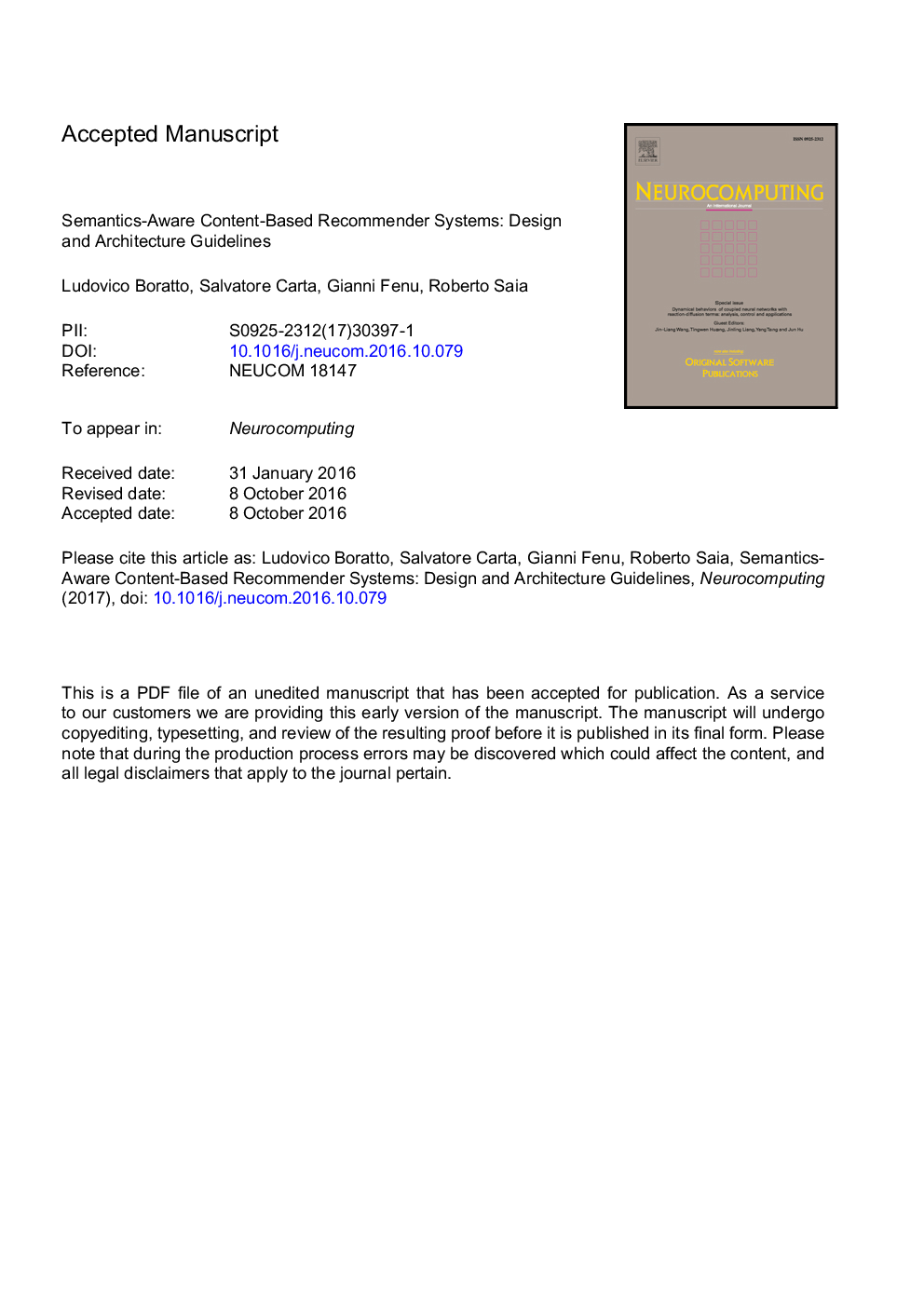| Article ID | Journal | Published Year | Pages | File Type |
|---|---|---|---|---|
| 4947254 | Neurocomputing | 2017 | 29 Pages |
Abstract
Recommender systems suggest items by exploiting the interactions of the users with the system (e.g., the choice of the movies to recommend to a user is based on those she previously evaluated). In particular, content-based systems suggest items whose content is similar to that of the items evaluated by a user. An emerging application domain in content-based recommender systems is represented by the consideration of the semantics behind an item description, in order to have a disambiguation of the words in the description and improve the recommendation accuracy. However, different phenomena, such as changes in the preferences of a user over time or the use of her account by third parties, might affect the accuracy by considering items that do not reflect the actual user preferences. Starting from an analysis of the literature and of an architecture proposed in a recent survey, in this paper we first highlight the current limits in this research area, then we propose design guidelines and an improved architecture to build semantics-aware content-based recommendations.
Keywords
Related Topics
Physical Sciences and Engineering
Computer Science
Artificial Intelligence
Authors
Ludovico Boratto, Salvatore Carta, Gianni Fenu, Roberto Saia,
